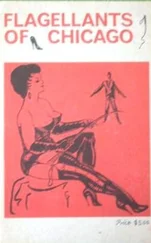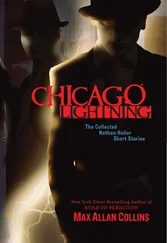From:The office of the minister of higher education in Egypt
To:Professor Karam Doss, Northwestern Memorial Hospital, Chicago
Re:We have a sick university professor who is in urgent need of an operation to change several arteries. Please indicate whether you can take him at the earliest opportunity. Please respond promptly so we can take necessary measures.
Name of patient:Dr. Abd al-Fatah Balbaa
Karam stared at the fax for about a minute then put it in his pocket and left. He drove home, exerting great effort to stay focused. On the balcony overlooking his large garden he poured himself a drink, then opened the fax and reread it slowly. What was happening? What an extraordinary coincidence! It was as if he were watching an Egyptian soap opera. Dr. Abd al-Fatah Balbaa himself had succumbed to heart disease and was asking him in particular to save his life? He smiled sarcastically and little by little found himself laughing out loud. Then he started thinking again: Who said that was a coincidence? The Lord didn’t do things by chance. What was happening was quite fair and logical. Was he not wronged? Was he not persecuted? Didn’t he feel he had no worth and no dignity? Didn’t he cry and kneel before Jesus, the savior? The Lord was now righting the wrong. The man who one day told him he couldn’t be a surgeon, the one who ruined his future in Egypt and doomed him to a life of total exile, was now sick and begging him to save his life. He thought: Well, Mr. Balbaa, if you want me to perform the surgery, first we have to settle our old score. How many times do you have to apologize? A hundred times? A thousand times? What good will that do now? When he finished his third glass he had made up his mind. He was not going to perform the operation on Balbaa. Let him find another surgeon. Let him die. We all are going to in the end. He was going to decline the operation and his response should be cold and extremely overbearing. He formulated this reply:
Professor Karam Doss cannot perform the operation on patient Balbaa because his schedule is overbooked with urgent cases for months and he has no room for a new patient.
He started typing the letter on the computer but suddenly got up, as if he had remembered something. He stood reluctantly in the middle of the room, and then walked over slowly toward the cross. He knelt down and began to recite the Lord’s Prayer in sincere humility. He whispered in a trembling voice, “O, Father, not my will, but thine. For thine is the kingdom, and the power, and the glory, forever. Amen.”
He remained kneeling, his eyes closed for some time, then he got up and opened his eyes, as if he had awakened from sleep. He sat in front of the computer and found himself deleting what he had written and starting a new reply:
From:Karam Doss
To:The Office of the Minister of Higher Education in Egypt
Professor Abd al-Fatah Balbaa was my professor at Ain Shams Medical School. I will do my best to save his life. Please take necessary measures so that he may come as soon as possible. The cost will be just the hospital expenses, as I am waiving my fee in appreciation of my professor.
He printed the letter then sent it by fax, and when the machine printed the transmission-completed report, Karam put his head between his hands and sobbed like a child. All his assistants said that he had never performed an operation the way he had on Dr. Balbaa, as if everything he had learned in surgery had been concentrated in his hands that morning. He was glowing, on top of the world; moving from one step to the next gracefully, skillfully, and in utmost control, so much so that he went several times around the operating table to reassure himself of certain details. Catherine, the most senior nurse on his team, said as she congratulated him after the operation, “You were not just successful, sir. You were inspired. It seemed like you were operating in a most affectionate manner, as if you were treating your father’s injured foot or adjusting his head as he slept.”
The days after the operation, Dr. Karam followed up with his former professor as he did with all his patients. And when he examined the X-ray one week after the operation, he laughed happily and said his favorite sentence, the one he always used to reassure the patients: “In a few months, you will be able to play soccer if you want to.”
He got up to leave, but Dr. Balbaa grabbed his hand suddenly and said in a weak voice, “I don’t know how to thank you, Dr. Karam. Please forgive me.”
That was the first reference to their past. Karam felt a little awkward, then held his professor’s hand gently and was about to say something, but he just smiled awkwardly and hurried out of the room.
Marwa called her parents on Friday. As soon as her mother asked her how she was, she burst out crying. Her mother was quite moved and began to calm her down and ask her what the matter was. Marwa told her everything: Danana’s miserliness, his selfishness, and his coveting her fortune. She also hinted at their intimacy problem. When she said that he slapped her on the face her mother got extremely angry and shouted, “May his hand be cut off! He should learn how to respect the daughters of good families.”
Marwa was reassured by her mother’s angry reaction in solidarity with her, and after a lengthy interlude of complaining and consoling, Marwa said she insisted on getting a divorce from Danana. Thereupon, much to her surprise, the mother’s position went to the other extreme. She rejected talk of divorce “because it is not a game.” She said that if every marital problem ended in divorce, not one woman would stay married. She assured her daughter that all houses had problems and that the first year was the most difficult in any marriage. A wise wife, she reminded her daughter, would patiently put up with the shortcomings of her husband and strive to rectify them so that life might go on. She gave herself as an example: early on in her own marriage she had to put up with Hagg Nofal’s extremely short fuse (and other bad traits to which she alluded without giving any details) until God finally guided him to the right path and he became such a model husband that all women envied her on his account. But Marwa said, “You cannot compare Danana to my father at all.”
“Listen, what do you want?”
“Divorce.”
Her mother burst into a violent, typical Egyptian woman’s reaction. “I don’t want to hear this word, understand?”
“But I hate him. I can no longer stand him touching me.”
“I don’t like beating around the bush. I am going to ask you one question. Is your husband a man?”
Marwa made no reply.
“Answer me: is he a man?”
“Yes.”
“Okay then, time will take care of all problems.”
“But he…”
“For shame, Marwa, stop. Girls of good families don’t talk about these subjects, ever. Have you gone crazy or has life in America made you forget the way you were brought up? This thing in particular most women do out of a sense of duty and tomorrow God will bless you with children and you’ll forget it completely.”
Marwa saw no use in continuing the conversation so she ended the call with a few ambiguous words. Then she sat down to think about what her mother had said, but the telephone rang again and she was surprised to hear her father’s voice. He spoke to her more calmly and in a more affectionate way and yet he repeated what her mother had said. At the end he said, begging her, “You’ve always been a dutiful girl. Don’t do anything rash. There’s nothing worse than a wrecked home.”
That night she didn’t go to bed. She tossed and turned on the sofa until she came to when she heard Danana performing ablution for the morning prayer. She recalled what had happened and reflected on it: her father and mother were the ones who loved her most in this world and yet they were both strongly against the idea of divorce. Could she be mistaken? Could she be rushing to conclusions and ruining her home, something she would possibly regret when it was too late? She recalled the word divorce , and for the first time it sounded strange to her and frightening. For the first time divorce seemed to be something mysterious and tragic, like death or suicide. Images of divorced women she had crossed paths with came rushing to her mind. A divorced woman was one who had failed to keep her husband, who was suffering loss and distress, who was a burden on her family and friends, who was chased by all kinds of men because, not being a virgin, she had nothing to lose. She was a woman whom people pitied and accused in many unstated ways. She did not want that image for herself and she had to respect the advice of her parents because they had more experience than she and because they wanted nothing for her except happiness and a good life. Besides, she had never married before and had no experience with men (except light, casual attraction to some college classmates that never went beyond lengthy telephone conversations). What did she know? Couldn’t it be that most women suffered like her and just stuck it out to keep the family together? Didn’t her mother say explicitly: “This intimate relationship we women consider just a matter of duty, and after having children we might forget it completely”? Couldn’t it be that her mother, like her, had suffered in bed and yet was able to love her father and have children with him and go on living with him for many years? Wouldn’t it be better for her to reconsider her relationship with Danana?
Читать дальше
Конец ознакомительного отрывка
Купить книгу












